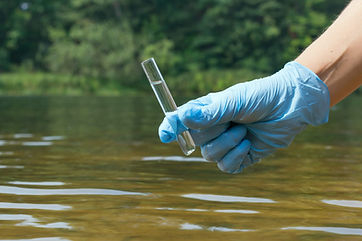What chemicals might be in my water?
A number of different chemicals may be found in your water, depending in part on where your water comes from.
To disinfect water, many municipal water treatment plants use chlorine or chloramines, which may linger and make their way into drinking water, making ‘tap’ water unpleasant for some people.
While municipal water plants do use filters and other methods to remove a wide range of potential contaminants – especially those with strictly mandated limits -- there are a may be a significant number of unregulated chemicals in water that many users may be sensitive to. The risk of chemicals in water may be even higher with water supplied by a private well, which taps into aquifers fed by groundwater.
Depending on the location, this groundwater be exposed to a range of chemicals and pollutants, including pesticides, spilled fuels, and toxins that have not been disposed of properly, including prescription medications and various types of hazardous waste. In some locations, older industrial chemicals, including polychlorinated biphenyls (PCB) and (trichloroethylene) TCS, can also be found in the groundwater and aquifers.

